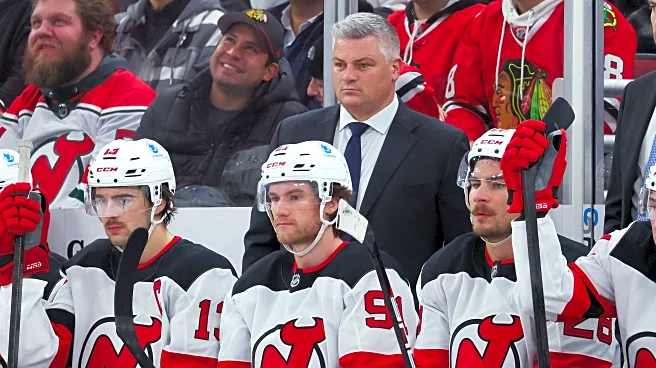Rapid Read • 8 min read
Negotiations for a landmark treaty aimed at addressing the global plastic pollution crisis are underway in Geneva, Switzerland, with United Nations member states meeting from August 5 to August 14, 2025. The treaty seeks to establish legally binding measures to reduce plastic production and manage its lifecycle, including design, disposal, and recycling. However, the process has faced significant challenges, as major corporations and countries with vested interests in plastic production, such as Saudi Arabia, oppose production limits. Greenpeace advocates for a 75% reduction in plastic production by 2040, emphasizing the severe environmental and health impacts of plastic pollution. Despite these efforts, the U.S. has not supported global production caps, focusing instead on improving waste management and recycling.
AD
The outcome of these negotiations holds significant implications for global environmental policy and public health. Plastic pollution affects ecosystems worldwide, with microplastics found in human blood and breast milk, linked to health issues such as cancer and hormone disruption. The treaty's success could lead to substantial reductions in plastic waste, which currently leaks millions of tons into aquatic ecosystems annually. Failure to reach a consensus may result in continued environmental degradation and health risks, while successful implementation could drive innovation in sustainable materials and practices, benefiting industries and communities globally.
If the treaty negotiations succeed, countries will need to implement policies that align with the agreed measures, potentially leading to shifts in industry practices and consumer behavior. The U.S. and other nations opposing production limits may face pressure to reconsider their positions. Additionally, startups like GaeaStar, which offer sustainable alternatives to plastic, could gain traction, influencing market dynamics and encouraging further innovation in eco-friendly products.
The treaty negotiations highlight the ethical and cultural dimensions of environmental stewardship, particularly the rights of Indigenous communities affected by plastic production. The resistance from major corporations underscores the tension between economic interests and environmental responsibility. Long-term, the treaty could catalyze a shift towards circular economies, reducing reliance on fossil fuels and promoting sustainable development.
AD
More Stories You Might Enjoy











